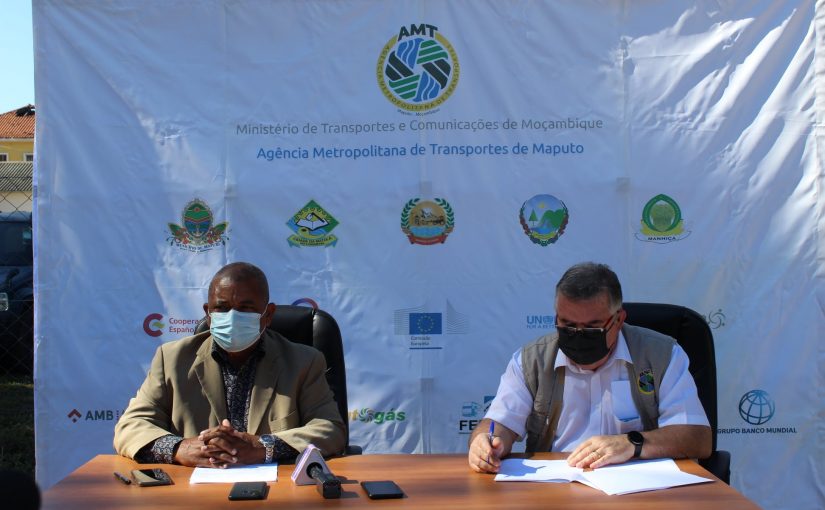Mozambique: President blames banks for shortage of foreign currency
Mozambique: Fematro urges members to embrace e-ticketing service

Photo: Agência Metropolitana de Transporte de Maputo- AMT on Facebook
The chairperson of the Mozambican Association of Road Transport Operators (Fematro), Castigo Nhamane, on Friday urged every stakeholder in the transport business in the Greater Maputo Metropolitan Area to embrace the electronic ticket system on the buses, which is essentially intended to improve the quality of service.
Nhamane, who was briefing reporters at a joint press conference with the Metropolitan Transport Agency (AMT), in Maputo, after the strike on 3 May by the operators, has also called on passengers to adhere to the e-ticketing system through the “Famba” card (which means “Go” in the most spoken language in southern Mozambique), that will help keep safe the money from the bus fares.
“We have reached an agreement with every cooperative management and the bus staff for them to use the e-ticketing system on the buses moving down the streets of Greater Maputo”, he said, adding that soon several teams, consisting of Fematro and other stakeholders will be set up to inspect the system.
Without any warning, private transport operators decided to go on strike in the Greater Maputo Metropolitan Area on 3 May, demanding the right to raise their fares. The move left thousands of passengers unable to go to work because on many key routes there were no buses. Many gave up trying and went home.
But the Chairperson of the AMT Board, Joao Matos, assured reporters that the bone of contention with the bus operators has been overcome, after they learned the advantages of the electronic ticketing. This began in February, and is still in its pilot-phase.
“There comes a time when the operators, using a personal computer or even a smart phone, will be able to know where the bus is, how many trips it has made, how many passengers were carried and the amount of money collected,” Matos stressed, pointing out that after the card system has been consolidated passengers will enjoy the benefits enshrined in the law.
So far, the card system has been inserted into 97 of the 397 buses operating in Greater Maputo and transporting between 250,000 and 300,000 passengers every day.
Questioned whether the e-ticketing system would not worsen delays at overcrowded bus stops, making it impossible for the buses to keep to the timetable, he said there are important findings made during the pilot-phase which will definitely contribute to improve the situation.
For instance, he said, “the bus drivers will keep a device and on the bus-stops with frequent overcrowding there will be an official also with a device who will do the magnetic check. When the bus arrives, passengers will just board and travel.”
The transport management is gradually breaking with old habits and adopting modern and new ones. Matos though that under these circumstances, skepticism and uncertainty among some of the stakeholders would be normal.
AMT will carry out a training session for the bus staff and conductors on how to operate and use the new Code system and how to access data from a computer. Matos added that the ultimate goal is to turn the transport service in Greater Maputo into a professional activity and thus ensure the desired sustainability.












Leave a Reply
Be the First to Comment!
You must be logged in to post a comment.
You must be logged in to post a comment.